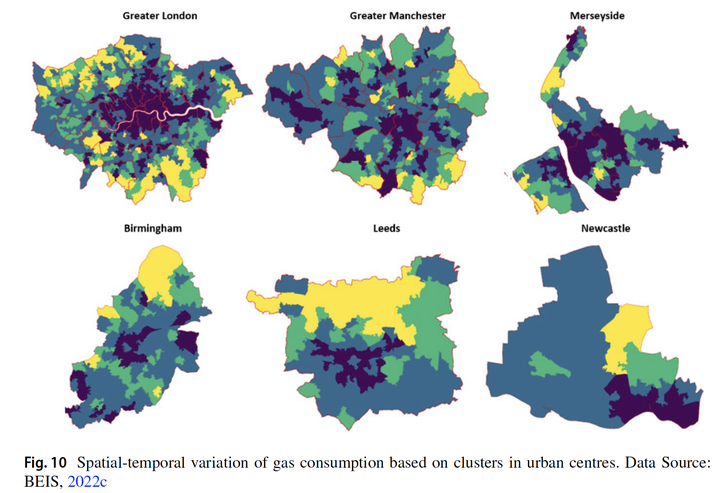Spatial-Temporal Dynamics of Gas Consumption in England and Wales. Assessing the Residential Sector Using Sequence Analysis

Abstract
The UK residential sector is energy inefficient and has an overwhelming reliance on natural gas as a heating source. For the UK to meet its 2050 net zero obligations, the sector will need to go through a process of decarbonisation. Previous studies acknowledge the spatial disparities of household energy consumption, but have neglected how consumption varies over time. This paper advances such shortcomings via a sequence and clustering analysis to identify common gas consumption trajectories within neighbourhoods in England and Wales between 2010 and 2020. Four clusters are identified Very High to High Consumption; High to Medium Consumption; Medium to Low Consumption and Low to Very Low Consumption. The clusters were contextualised using spatial datasets representing the socio-economic and built environment. Across all clusters, the proportion of energy inefficient dwellings were high, but there was a trend of high consumption associated with lower proportions of energy efficient dwellings. The results provide useful insight to policy makers and practitioners about where best to target electrification and retrofitting measures to facilitate a cleaner and more equitable residential sector. Policy targeting of areas with continual high gas consumption will accelerate the decarbonisation process, whilst targeting areas who continually under consume will likely enhance household health and well-being.